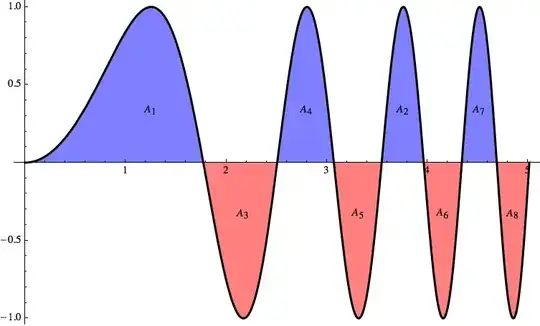Note that the integral is equal to
$$\operatorname{Im}{\left [\int_1^{\infty} dx \, e^{i x^2} \right ]} $$
Because the integral over $[0,1]$ is in fact finite, the question is equivalent to considering whether the following integral converges:
$$\operatorname{Im}{\left [\int_0^{\infty} dx \, e^{i x^2} \right ]} $$
To show that it indeed converges, consider the following contour integral in the complex plane:
$$\oint_C dz \, e^{i z^2}$$
where $C$ is a $45$-degree circular sector in the upper right quadrant, along the real axis, of radius $R$. The contour integral is then equal to
$$\int_0^R dx \, e^{i x^2} + i R \int_0^{\pi/4} d\theta \, e^{i \theta} \, e^{i R^2 e^{i 2 \theta}} + e^{i \pi/4} \int_R^0 dt \, e^{-t^2}$$
As $R \to \infty$, we can show that the second integral has a magnitude bounded by
$$R \int_0^{\pi/4} d\theta \, e^{-R^2 \sin{2 \theta}} \le \frac{R}{2} \int_0^{\pi/2} d\theta \, e^{-2 R^2 \theta/\pi} \le \frac{\pi}{4 R}$$
Thus the second integral vanishes as $R\to\infty$. By Cauchy's theorem, the contour integral is zero; therefore
$$\int_0^{\infty} dx \, e^{i x^2} = e^{i \pi/4} \int_0^{\infty} dt \, e^{-t^2} $$
which converges. Thus, the original integral converges.
